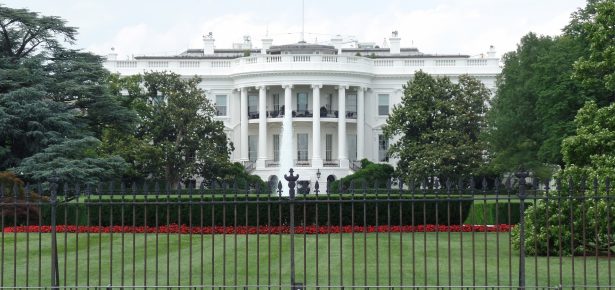
What do Oprah Winfrey, Anne of Green Gables, Norman Vincent Peale, and United States President Donald Trump have in common?
These individuals, real and fictional, embrace a nineteenth-century new religious movement known as New Thought that is related to Mary Baker Eddy’s Christian Science. New Thought, also known as “mind cure,” teaches that “thoughts become things” that “attract … like thoughts to you,” in the words of Rhonda Byrne’s bestseller The Secret (2006), which recycles New Thought platitudes for a new generation. New Thought suggests that you need only visualize a desired outcome in order to achieve it: “Ask, believe, and receive,” as followers are wont to say, or “name and claim it.” By wanting something enough, picturing this goal in your mind, and proclaiming it to yourself and others, you might just “manifest” the success you hope to achieve. The seductive aspects of this philosophy include its hopeful affect, relative ease of application, and elevation of individuals to Godlike status through their alleged power to transform their surroundings.
Children’s Literature and the Rise of “Mind Cure”: Positive Thinking and Pseudo-Science at the Fin de Siècle shows how classic children’s literature written between 1880 and 1930 primed Anglophone readers worldwide to accept New Thought in their own lives. British, Canadian, and American writers such as Frances Hodgson Burnett, Lucy Maud Montgomery, and Charlotte Perkins Gilman dabbled in New Thought and Christian Science and incorporated elements of these philosophies into perennially popular works like The Secret Garden (1911), Anne of Green Gables (1908), and Herland (1915). For female authors who came of age in the nineteenth century, New Thought harnessed the power of the mind to console and cure.
By the early twentieth century, New Thought had transformed from a female-dominated faith centered on spirituality and health to a male-centered movement focused on financial success and touted by industrial magnates such as Andrew Carnegie and Henry Ford. This shift explains the presence of Donald Trump on my earlier list. The current US President is a longtime devotee of Norman Vincent Peale, the author of New Thought blockbuster The Power of Positive Thinking (1952), which spent 186 weeks atop the New York Times bestseller list. Trump attended Sunday services at Peale’s Marble Collegiate Church for almost fifty years and married his first wife, Ivana, there in 1977. Trump has said that Peale “thought I was his greatest student of all time.”
Trump’s New Thought background may explain why he announced that COVID-19 is “going to disappear … like a miracle,” in February 2020, a statement he reiterated at least thirty-eight times since then. For a New Thought believer, affirmations of positive ideas and denials of negative ones form an important part of their faith. Therefore, Trump is not in denial about COVID-19. Instead, he is actively denying COVID-19 by using the power of his thoughts to prevent the disease from taking root or spreading. Even after falling ill with COVID himself, Trump still maintained that the cure for the virus is positive thinking. Similarly, during the November 2020 Presidential election, Trump issued a tweet in which he “claimed” victory in the states of Georgia and Pennsylvania (as in the popular New Thought expression, “name it and claim it”), where vote tallies favored his opponent.
These examples might tempt one to ridicule Trump’s outdated and outlandish spiritual beliefs. But optimism and New Thought are woven into the fabric of American culture. The President’s zeal for positive thinking helped him get elected in 2016, and nearly propelled him to victory again in 2020. Donald Trump is part of the cultural legacy of New Thought as much as Anne of Green Gables or The Secret Garden.
Sources consulted but not cited :
Barbara Ehrenreich, Bright-Sided: How the Relentless Promotion of Positive Thinking Has Undermined America. Picador, 2009.
https://www.cnn.com/interactive/2020/10/politics/covid-disappearing-trump-comment-tracker/
https://www.washingtonpost.com/outlook/2020/10/06/positive-thinking-trump-virus-fear/
https://www.nytimes.com/2016/09/06/nyregion/donald-trump-marble-collegiate-church-norman-vincent-peale.html
https://www.independent.co.uk/news/world/americas/us-election-2020/trump-claims-election-ballots-2020-b1600075.html
https://www.vox.com/the-goods/21524975/manifesting-does-it-really-work-meme?fbclid=IwAR0Zx0asEvIKJnSF6BrNX8aECynI-rSOhqmC-M5z-_pge2NH2KnmIIy6QSA
Latest Comments
Have your say!